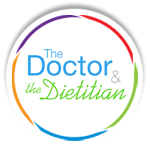Cinnamon is a versatile and well-known spice used in a variety of foods from sweet desserts, cinnamon rolls, and fruit smoothies to delicious savory dishes. We use it to prepare meals like butternut squash soup, chicken with dates and olives, or roasted pork tenderloin with apples. Cinnamon is also touted as having healing properties. The bark of the cinnamon tree has been used medicinally around the world in the form of supplements, teas, and essential oils.
There have been numerous studies regarding the benefits of cinnamon for health issues, with many interesting possibilities. Some studies in both humans and animals have shown cinnamon to helping to lower blood sugar and improve insulin resistance, key factors in health conditions like metabolic syndrome and type 2 diabetes. Research has also found that cinnamon has a strong antioxidant effect and help fight bacteria and fungus. Some studies have even shown promising benefits of cinnamon in the prevention of cancer and cutting the risk of heart disease. Although there is evidence that cinnamon is a fighter of systemic inflammation, and it has demonstrated possibilities of reducing various age-related diseases, there are many other factors that need to be considered for properly identifying a person’s risk of developing, as well as treating, such diseases.
The common cinnamon found in most grocery store aisles is cassia cinnamon which should not be used regularly in very high doses. If you want the health benefits of cinnamon, Ceylon “true” cinnamon is the way to go. Look for it in spice shops and health food stores. Adding true cinnamon to your diet can be a delicious way to boost numerous health factors. If you are thinking about adding it in larger doses as a supplement, discuss the ideal sources and amounts, as well as potential benefits and interactions, with your doctor.



